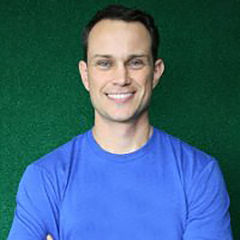Last Updated February 16, 2024 (originally published March 08, 2019)
After more than 20 years as a health professional, my philosophy has remained constant, but I have definitely revised my guidance regarding things like eating low-fat foods, calorie counting and intermittent fasting. In fact, some of the advice I offer my clients (and even the messaging I write in articles) vastly differs from my advice and messaging five to 10 years ago. These revisions do not stem from indecisiveness, but rather from a progressive understanding of human physiology and metabolism.
Whatever mechanisms cause weight gain have always done so, but our understanding of how the body digests and stores nutrients is constantly evolving. For example, carbohydrate, protein and fat still have 4, 4 and 9 calories per gram, respectively, but insight into the functions of the gut microbiome and hormones has changed the narrative on the roles of fats and sugars.
Over the years, my understanding of low-fat foods, calorie counting and fasting has evolved. With very few exceptions, I no longer advise my clients to eat low-fat foods, count calories and eat within an hour of waking. Read on to learn why…
“Eat low-fat foods.”
Without a doubt, my view of the role of dietary fat has evolved the most. In fact, I believe that as a nation, our early Dietary Guidelines for Americans were incorrect in their recommendations to consume a low-fat diet and, especially, to replace high-fat foods with low-fat and fat-free options. Unfortunately, as a result of those recommendations, Americans replaced fat with sugar and highly processed foods. During the past 40+ years (which coincides with when the low-fat guidelines were introduced) the U.S. population has become more overweight and obese.
Instead: Eat whole, unprocessed foods and include healthy fats (omega-3 and monounsaturated) at every meal. A caveat: Fruits and vegetables are “low-fat foods” that are underconsumed by most people, so don’t skimp on these particular low-fat and fat-free foods.
“Count calories and calculate macros.”
Calories in vs. calories out, right? If you want to lose weight, you simply need to burn more calories than you consume. I learned this in school and touted this statement for years. However, most people are unable to estimate their portion sizes, meaning that their calorie counts are often unreliable. And, most importantly, quality matters exponentially more than quantity.
Instead: Evidence suggests that ultra-processed foods (regardless of caloric content) may negatively affect our gut health and, therefore, alter the hormones that regulate hunger and satiety (ghrelin and leptin, for example). Thus, it’s time to shift the messaging from counting calories to eating as many whole, unprocessed foods as possible.
“Eat within an hour of waking.”
I once believed that breakfast was the most important meal of the day and that eating in the morning could jumpstart your metabolism. I am much less certain of that now. Intermittent fasting (IF), also referred to as time-restricted feeding, is currently popular and associated with many health benefits. I am not 100% convinced IF is an appropriate approach for everyone, but we do know that going 12 to 16 hours without a meal will not “slow down metabolism.”
Instead: When you get hungry, eat. That is, practice intuitive eating (also known as mindful eating). Experiment with eating and fasting windows, as some people may experience the purported benefits of IF with just a 12-hour fast (7:00 p.m. to 7:00 a.m., for example). The length of an eating window, however, is still secondary to what someone eats and drinks during that window (see above points regarding the quality of calories consumed).
Final Thought
As it turns out, I was not really wrong when I gave that advice in the past, and neither were my professors, mentors or colleagues when they taught me that information. We simply promoted nutrition standards based on the information we had at the time. It is important to realize that our understanding of how the body digests and stores carbohydrates, fats, proteins and micronutrients is constantly evolving—and will likely continue to evolve well into the future, so it’s vital that you review emerging research and update the advice you share with your clients accordingly.
If you are interested in learning more about what the scientific literature reveals about the intersection of nutrition and physical activity, check out Nutrition and Physical Activity: When Science Meets Application (worth 0.1 ACE CECs). In this course, you’ll learn about the distinctions among different types of research and how to use an evidence-based approach to help clients achieve their nutrition and physical-activity goals.




 by
by 








 by
by